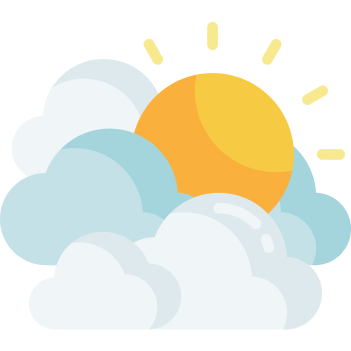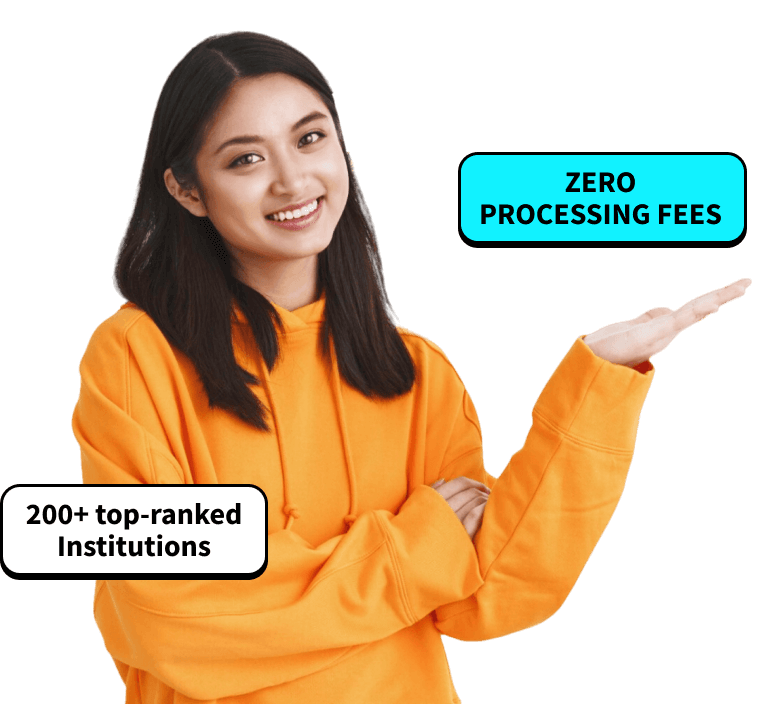STUDY IN NETHERLANDS
Dutch Educational Masterpiece – Fostering Brilliance Through Creativity.
Explore the Dutch educational masterpiece, where creativity, innovation, and an open-minded atmosphere foster academic brilliance.
FACTS
Learn everything you need to know about studying in Netherlands

CAPITAL
Amsterdam

Currency
Euro

Language
Dutch, English

International Students
122,300+

Population
17.63 Million

Universities & Colleges
20+
Universities
Here are some of the best universities in Netherlands where academic excellence takes center stage!
- Delft University of Technology
- University of Amsterdam
- Utrecht University
- Eindhoven University of Technology
- Leiden University
- University of Groningen
- Wageningen University & Research
- Erasmus University Rotterdam
- Vrije Universiteit Amsterdam
- University of Twente
- Radboud University Nijmegen
- And Many More
Ready to Explore the Options and Move Ahead with your Educational Voyage
Courses
Europe Education Consultants curated this list of popular courses among international students in the Netherlands
Turn your Study Abroad Dream to Degrees abroad in Netherlands
Why choose the Netherlands as your study abroad in Europe destination?
- Dutch higher education is regarded globally for its high quality. And this quality is ensured consistently by governmental supervision through the process of accreditation of institutions as well as programs. The recent QS World University Rankings feature 19 Dutch universities.
- About 2000 English-taught programs across a wide range of subjects are on offer at Dutch universities. To top it's, almost 95% of people in the Netherlands are proficient in English, which means that you would not have to face any major language barrier in the country.
- Increase your global orientation in the Netherlands, mingling with an inclusive community of Dutch students and students from no less than 160 countries across the world. Living in the diverse cultural environment of the Netherlands helps you broaden your horizons and connect with a multitude of cultures.
- Post graduation, kickstart your career with Dutch-origin MNCs like Shell, Phillips, Heineken, Unilever, KLM, ING, Tom Tom, BAAN, and Netflix to name just a few. The fifth largest economy in Europe and 18th in the world, the Netherlands has plenty of opportunities for skilled personnel to work and grow in the country.
- The cost of attending Dutch Universities is evidently less than many popular English-speaking countries in the world.
Intakes:
Intake: Fall
Session Starts: September
Intake: Spring
Session Starts: February
Each institution adheres to its own application deadlines and session start dates. For the specific timeline of your chosen university, consult recognized Netherlands Education Consultants today.
Tuition Fees
Tuition fees vary by institution and the program you choose to study in the Netherlands. However, the cost of pursuing higher studies in the country is lower than most popular foreign education destinations in the world. The average tuition fee can range between € 8,,500 to € 12,000 a year.
Scholarships to Study in Netherlands
International students planning to study abroad in Europe can avail of various scholarship options from the Government, institutions and private entities in Netherlands if they choose the country as their destination.

The Dutch Ministry of Education, Culture and Science funds the NL scholarship for non-EEA students in the first year of a Bachelor’s or Master’s program at one of the participating HEIs in the country. The one-time grant is valued at €5,000.
The Leiden University Excellence Scholarship Program (LExS) finances outstanding non-EU/EEA students pursuing full-time Master’s programs (except the LLM and MSc programs) at the university. The scholarships come in the form of tuition fee waivers, valued at €10,000, €15,000, or the full tuition fee except the statutory fee.
The UM High Potential Scholarships is financed by the Maastricht University for meritorious non-EEA students. The grant is extended to all master’s or professional graduate programs except for the ones from the School of Business and Economics. The beneficiary receives aid covering the tuition fee, monthly living costs, insurance, and visa costs.
Radboud University sponsors a select number of talented non-EEA students through the Radboud Scholarship Program. The student must have signed up for an English-taught Master’s degree programme at the university and will receive a tuition fee waiver besides funds covering the insurance, visa and residence permit costs.
The Utrecht University Excellence Scholarship is for non-EEA Master’s students of a few selected disciplines at the university. The scholarship is renewable annually. The awardees receive either a fee waiver or a fee waiver plus the annual account balance required to get a residence permit in the Netherlands.
The University of Groningen awards the Erik Bleumink Fund Scholarships to candidates pursuing Master’s degree programs at the institution. The award takes care of the program fees, living costs, books, health insurance and costs of international travel.
The Delft University of Technology extends several Excellence Scholarships for international students. One such grant is the Justus & Louise van Effen scholarship that supports foreign students pursuing an MSc at the university, with a tuition fee waiver and a monthly allowance towards the living cost.
The University of Twente Scholarships are for both EU/EEA and non-EU/EEA students signing up for MSc programs at the university. The grant amount ranges from €6,000 to €25,000 for a year.
Cost of Living
The average living expenses that you can expect to incur in the Netherlands are between €800 – €1,200 a month. The table here presents an estimate of living costs in the Netherlands.
Particulars | Estimated Monthly Expenses (in Euro) | |
Accommodation | Shared Flat: 400 – 700 | |
Basic Grocery | 150 – 170 | |
Utilities | 100 – 230 | |
Internet | 30 – 50 | |
Local Conveyance | 35 – 70 | |
Books and Stationaries | 30 – 65 | |
Social Activities | 50 – 60 | |
Work Opportunities:
Allowance:
- Students from the EU/EEA (except for Croatia) and Switzerland do not need a work permit to work in the Netherlands while pursuing an education. They also have the same privilege as the Dutch in terms of the number of hours they can work.
- Employers need to apply for a work permit on behalf of employees of Croatian origin. Further, there is no restriction on the number of working hours; however, for the ease of work permit processing, such students are advised to either work up to 16 hours a week through the year or work full-time during the summer months of June to August.
- All other nationalities studying in the Netherlands need a work permit to engage in a job. You can either work round the year, for 10 hours a week or work full-time during June-August.
- You do not need a work permit to undertake an internship related to your area of study in the Netherlands. However, you must sign an agreement with the internship provider and the internship coordinator at the Dutch university before starting the assignment.
The application for your Work Permit (TWV) is made by the employment agency or your employer. The application must be supported by a copy of your residence permit and a certificate issued by your institution confirming your enrolment. Your work permit will come through in about 5 weeks and you can start your work only after that. Please note that as soon as you engage in a part-time job, you must subscribe to Dutch public health insurance.
The year you graduate from a Dutch university is known as the Orientation Year.
EEA and Swiss students are free to stay and work in the Netherlands after graduation without any work permit requirement.
Non-EU/EEA students on the other hand may apply for an Orientation (Search) permit to work or take up an internship/traineeship in the country during the Orientation year. The application fee is €210 and the decision period is 90 days from the day of application. You can apply through the IND website.
Once you find a suitable occupation during the orientation year and wish to continue staying in the country to live and work, you should apply for a residence permit as a highly skilled migrant, start-up or self-employed person.

Climate / Weather:
The Netherlands climate is cool, cloudy and humid all year round. The average summer temperature is 17°C while in winter it is 3°C.
How To Apply at Dutch Universities to Study Abroad in Europe?
- Bachelor’s Degrees – Must have completed high school and hold a valid diploma certificate
- Master’s Degrees – Should have completed a Bachelor’s program in a relevant field of study with a minimum GPA equivalent to the Dutch 7.0 – 7.5.
- Application is usually through the centralized admission system Studielink.
- Some institutions, however, accept applications directly through their portals in which you have to again create an account to access the application form and complete the process by following the on-screen instructions.
Check with the UniApplica Study in Europe Consultants about how your preferred institution in the Netherlands wants you to apply. Make sure you apply well within the deadlines to be considered for admission.
- A valid identity document (e.g. your passport)
- Passport-size photographs
- All previous academic records, certificates, and transcripts (must be supported by a certified English translation if issued in any other language originally)
- For Master’s degrees, you need to submit study plans, subjects and hours completed in your Bachelor’s degree for equivalency evaluation
- Evidence of language proficiency
- Personal Statement (Dutch if applying for a Dutch-taught program, English if applying for an English-taught program)
- Standardized test scores like the GRE, and GMAT (if the program demands so)
- LoRs
- CV
- Proof of application fee payment
- Evidence of financial sufficiency
Some universities may ask you to appear for an admission interview or offer conditional admission if your qualifying certificate is due from your previous institution. Further, your qualifications may fall short of the Dutch standards, and you may be asked to take supplementary courses at the beginning of your studies in the Netherlands.
Find out from the experienced Europe Education Consultants at UniApplica under what circumstances your qualifications may fall short of the eligibility requirement at Dutch universities.

Dutch Study Visa Guidance
Visa Category:
- Non-EU / EEA students, who wish to be in the Netherlands for more than 90 days, require a Long-stay visa (MVV) to enter the country. You can apply for one at the Dutch Diplomatic Mission in your home country.
- To study in Dutch HEIs, you need a Residence permit to study.
Application process
- Your education provider in the Netherlands must submit your residence permit and MVV application to the Immigration and Naturalization Service (IND) on your behalf.
- You should pay the application fee through the institution.
- Your educational institution will receive the decision from IND in a letter. If the decision is in your favor, you can collect the MVV at the Dutch representation in your home country (assuming that was specified on the application form).
- Please note that the MVV is valid for 90 days and hence you need to collect it within 3 months of the decision.
- Set up an appointment at the Dutch representation to collect the MVV. Carry your passport when you collect the MVV. You will be asked to submit your biometrics at this point.
- You can collect your resident permit upon arrival in the Netherlands from the IND desk. You will be intimated by your educational institution about the availability of the permit. You need to set up an appointment with the IND to collect the same.
Dutch Visa Application fee: €210 | Visa Processing Time: 60 days
Documents required for the Dutch Resident Visa and MVV
- Valid Passport
- Passport-size photographs
- All academic transcripts
- A certificate from your Dutch education provider with details of the program you signed up for
- A motivation letter detailing why you want to study the particular program.
- Travel and health insurance for the intended period of stay.
- Evidence of financial sufficiency.
- Evidence of application fee payment


Beyond Borders, Beyond Limits
Elevate Your Education with Global Opportunities! Unite with
Leading Advisors and an Empowered Study Abroad Community.
FAQs
Why Study Abroad With UniApplica?
UniApplica covers the basics every Study needs. For everything, Anything.
WO and HBO are the two types of tertiary education institutions in the Netherlands.
WO or the universiteiten refers to traditional universities that focus on academic and scientific research and offer programs at the undergraduate, postgraduate and doctorate levels. There are 12 such general universities of three technical institutions in the country and are the only ones that are known as universities.
HBO or hogescholen are in the domain of higher professional education in the Netherlands offering programs in agriculture, economics, business and management, teacher training, health care, engineering, and art. Fundamentally focused towards vocations, HBOs train students through practical exposure rather than theoretical lectures. HBOs offer programs at the undergraduate and postgraduate levels only and include compulsory internships. As such, a Bachelor’s degree at an HBO will take 4 years to complete instead of 3 years in a traditional Dutch university.
NumeroFixus is a distinctive feature of the Dutch higher education system implying a fixed number of students that can enrol in a particular program at any HEI. When a program with NumeroFixus receives applications above the acceptable number of enrolments, a selection process is undertaken by the institution in question to shortlist the best of the lot for admission.
Such a selection process may include additional eligibility criteria to the program, a draw of lottery, or a combination of the two. Usually most popular programs, like the English-taught medicine, psychology, and business programs have the NumeroFixus attribute and it is best to check with the Europe Education Consultants to find out exactly.
If you are enrolling with an HEI in the Netherlands, you should have funds equal to €957.87 a month for at least a year in your bank account towards your living cost in the country. For subsequent years of study, the applicable monthly funds required should be available in your account for the program duration. IND updates the minimum funds requirement biannually.
For Dutch-taught degree programs in the Netherlands, you must have either the NT2 Test scores or the Dutch TUL intermediate exam scores to prove your proficiency in the language.
For English-taught programs, you should have either scored a minimum of 213 in TOEFL CBT or 6.0 in IELTS to qualify for admission.
Please note that whether you are joining an English-taught or Dutch-taught program in the Netherlands, a minimum level of English proficiency is required of all students. Additionally, you may be asked to submit proof of proficiency in both languages, depending upon the program you are enrolling in.
